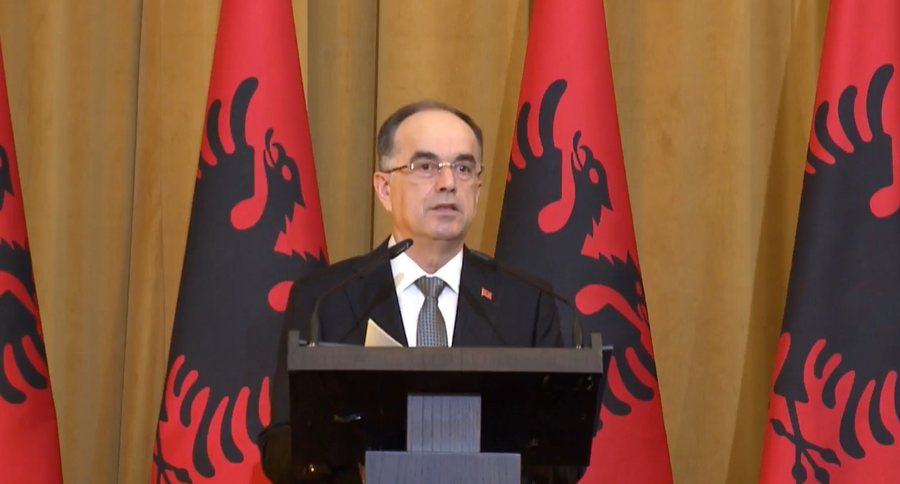
The President of the Republic, Bajram Begaj, has requested from the Constitutional Court a final clarification on the mechanism of partial renewal of the judiciary, demanding that this process be implemented fairly and in accordance with the Constitution.
The President's letter states that clarifying this aspect is key to avoiding potential violations of the Constitution and ensuring the integrity of the justice system.
"The Constitutional Court has taken the decision on 23.12.2024 to declare the end of the mandate of the Constitutional Judge, Ms. Holta Zaçaj, with the aim of protecting and enabling the partial renewal of the Court at 3-year intervals, as required by the Constitution.
Judge Zaçaj was appointed to the position of Constitutional Judge in January 2023, with a delay of almost 6 years from the moment the vacancy was created, caused by circumstances known to and independent of her.
All constitutional judges have been appointed with a delay from the moment the vacancy was created after 2016, until today.
The Law on the Constitutional Court stipulates that the term of office of the Constitutional Judge begins on the date of taking the oath and ends, for initial judges, as the case may be, eight or nine years later. In the context of the late appointment of initial judges, the application of this provision nullifies the principle of partial renewal, both in 2025 and in 2028 or in 2031.
In the case of Judge Zaçaj, the Court found a solution by linking the beginning of the mandate with the date when the mandate of the previous member of the Constitutional Court ended and the end of the mandate with the deadline for the partial renewal of the body. However, the Court did not express whether this solution also applies to other constitutional judges, whose late appointment disrupts the mechanism for the renewal of the body.
The partial renewal simultaneously includes three specific mandates. In order for the renewal intended by the Constitutional Court for 2025 to occur, the Court's reasoning for the renewal must also extend to the other two mandates that coincide with the renewal deadline.
The Constitutional Court's decision does not clarify this aspect, while the deadline for declaring the end of these mandates has expired without the Court taking any action, placing the appointing bodies in difficulty.
The Constitutional Court has had the obligation to create complete clarity about its decision-making, as it should be the first, most devoted and correct implementer of its decisions. In fact, the Court has preferred to transfer this responsibility to other institutions.
In the context of the Court's inaction, the President of the Republic has used the only opportunity recognized by law, the possibility of filing a request for a dispute of competence, to have the Constitutional Court resolve in a fair, comprehensive, constitutional and exhaustive manner the impasse created by the partial renewal mechanism.
The President of the Republic hopes that in this way the Constitutional Court will be able to fully and definitively clarify how the partial renewal of the Court should be, so that it is considered in accordance with the Constitution.
"The Constitutional Court must make this clarification in such a way that it is of value to all current constitutional judges, otherwise there will be no possibility of correcting the deformation of the renewal mechanism and any intervention to shorten certain mandates, only for one or a few judges, would be in open violation of the Constitution," the President's letter to the Constitutional Court states. (A2 Televizion)











